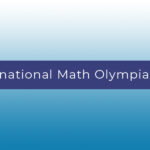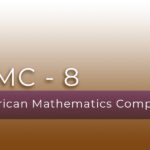India National Olympiad 1992 Problems
Problem 1
In a triangle $ABC$, $\angle A = 2 \cdot \angle B$. Prove that $a^2 = b (b+c)$.
Problem 2
If $x , y, z \in \mathbb{R}$ such that $x+y +z =4$ and $x^2 + y^2 +z^2 = 6$, then show that each of $x, y, z$ lies in the closed interval $\left[ \dfrac{2}{3} , 2 \right]$. Can $x$ attain the extreme value $\dfrac{2}{3}$ or $2$?
Problem 3
Find the remainder when $19^{92}$ is divided by 92.
Problem 4
Find the number of permutations $( p_1, p_2, p_3 , p_4 , p_5 , p_6)$ of $1, 2 ,3,4,5,6$ such that for any $k, 1 \leq k \leq 5$, $(p_1, \ldots, p_k)$ does not form a permutation of $1 , 2, \ldots, k$.
Problem 5
Two circles $C_1$ and $C_2$ intersect at two distinct points $P, Q$ in a plane. Let a line passing through $P$ meet the circles $C_1$ and $C_2$ in $A$ and $B$ respectively. Let $Y$ be the midpoint of $AB$ and let $QY$ meet the cirlces $C_1$ and $C_2$ in $X$ and $Z$ respectively. Show that $Y$ is also the midpoint of $XZ$.
Problem 6
Let $f(x)$ be a polynomial in $x$ with integer coefficients and suppose that for five distinct integers $a_1, \ldots, a_5$ one has $f(a_1) = f(a_2) = \ldots = f(a_5) = 2$. Show that there does not exist an integer $b$ such that $f(b) = 9$.
Problem 7
Let $n\geq 3$ be an integer. Find the number of ways in which one can place the numbers $1, 2, 3, \ldots, n^2$ in the $n^2$ squares of a $n \times n$ chesboard, one on each, such that the numbers in each row and in each column are in arithmetic progression.
Problem 8
Determine all pairs $(m,n)$ of positive integers for which $2^{m} + 3^{n}$ is a perfect square.
Problem 9
Let $A_1, A_2, \ldots, A_n$ be an $n$ -sided regular polygon. If $\frac{1}{A_1 A_2} = \frac{1}{A_1 A_3} + \frac{1}{A_1A_4}$, find $n$.
Problem 10
Determine all functions $f : \mathbb{R} – [0,1] \to \mathbb{R}$ such that\[ f(x) + f \left( \dfrac{1}{1-x} \right) = \dfrac{2(1-2x)}{x(1-x)} . \]




